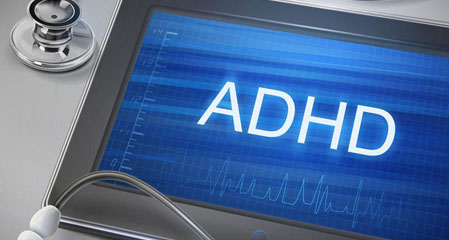
Over two-thirds of American children with Attention Deficit Hyperactivity disorder (ADHD) will have symptoms that persist into adulthood, and ADHD is now the second most common major mental disorder in adults. The difficulty focusing and impulsivity that are hallmarks of ADHD lead sufferers to struggle with procrastination, missed deadlines, memory impairments, interpersonal dysfunction, job difficulties, and legal problems.
Non-pharmacological Treatments for ADHD
Medication is the standard treatment for ADHD and has been shown to be safe and effective. Psychotherapy can also help people struggling with ADHD to learn useful skills that address bothersome symptoms and prevent any associated impairment in functioning. A skilled therapist can collaborate with the patient to modify his or her environment in ways that are conducive to greater focus.
- Skills-based therapy – a form of treatment anchored in the development of specific skills that are affected by ADHD, such as time management and organization.
- Cognitive behavioral therapy (CBT) – originally developed to treat depression and anxiety, CBT identifies unhelpful patterns of thought, feelings, and emotion, and replaces them, through specific techniques, with virtuous habits of mind. A novel form of CBT, called CBT for Insomnia (CBT-i), may be helpful for individuals whose symptoms are found to be due to, or exacerbated by, sleep difficulties.
- Environmental restructuring – patients often find that the symptoms of ADHD are improved by making changes in their environment, such as the elimination of distracting stimuli.
- Family therapy – ADHD affects more than just the patient. It can have a significant impact on their loved ones as well. As a result, family therapy focuses on teaching the entire family the necessary coping skills to minimize anxiety and stress.
Medication
After several years of heightened concern among the general public about possible overdiagnosis of ADHD and excessive utilization of habit-forming medication, particularly among children, scientific studies have shown that long-term use of the most commonly prescribed medications for ADHD is safe and effective for patients. 70-80% of patients with ADHD will have clinically meaningful benefits, and treatment neither increases nor decreases the risk of developing substance abuse.
Many patients are surprised to learn that there are multiple categories of medication for treating the symptoms of ADHD. Though the stimulants (e.g., Ritalin and Adderall), remain the most commonly prescribed and most reliably effective medication options, there are non-stimulant medications that have also been shown to help. These include antidepressants, such as Wellbutrin, adrenergic medications, such as Intuniv and Strattera, and the narcolepsy medications Modafinil and Armodafinil.
Better Together
Though effective individually, multiple randomized controlled clinical trials have shown that combined treatment is superior to either medication or psychotherapy alone. Combined treatment is available from the subset of psychiatrists that offer psychotherapy, as well as through split treatment with separate providers for medication management and psychotherapy.
